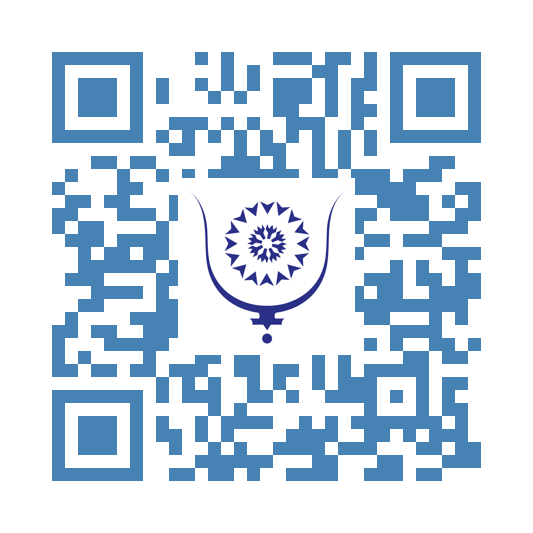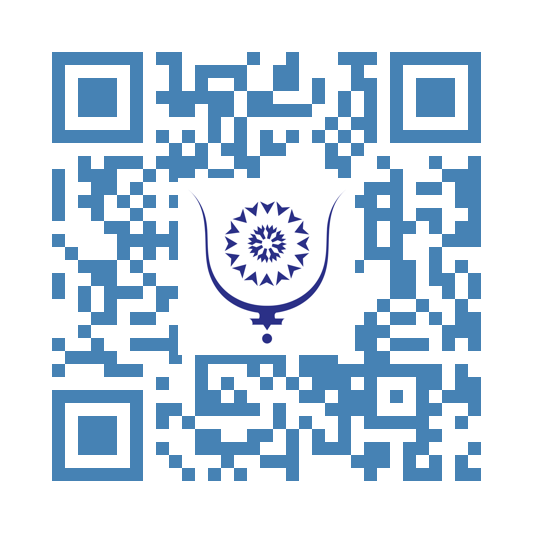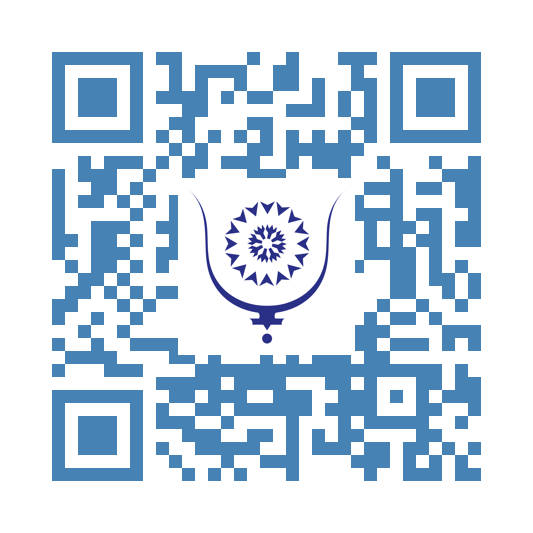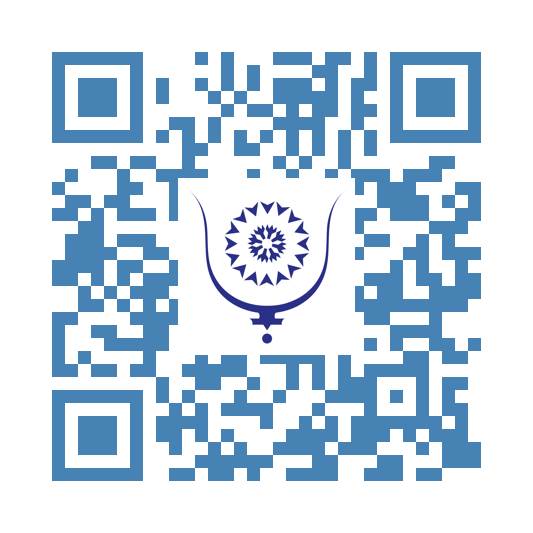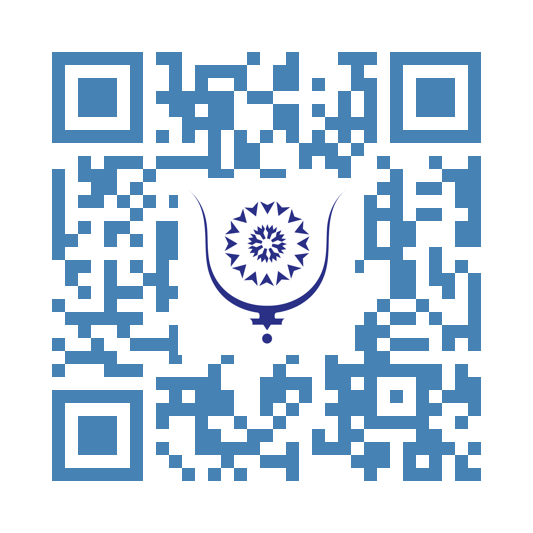The Greek Magical Papyri
131
The Greek Magical Papyri (Latin: Papyri Graecae Magicae, abbreviated PGM) represent one of the most important and enigmatic bodies of esoteric literature from the ancient world. Comprising a collection of spells, rituals, hymns, and invocations compiled between the 2nd century BCE and the 5th century CE, these papyri offer an extraordinary glimpse into the syncretic spiritual practices of Greco-Roman Egypt. Preserved mainly on fragile scrolls and manuscripts written in Greek (with occasional Coptic, Demotic, and even Hebrew terms), the PGM bridge the realms of religion, folk magic, and mystery traditions. They are not only historical artifacts but also bear witness to a time when the boundaries between magic, religion, and science were fluid and deeply interconnected.
The texts were discovered primarily in Egypt, particularly in the city of Thebes, and made their way to European collections during the 19th century. They were finally compiled and published in the early 20th century, most notably by Karl Preisendanz, and later translated into English by scholars such as Hans Dieter Betz. The rituals recorded in the PGM range from practical spells—such as those for healing, protection, love, and curse-breaking—to theurgic operations intended to invoke divine beings and achieve ecstatic union with the cosmos.
One of the most distinctive features of the Greek Magical Papyri is their religious syncretism. The practitioner calls upon gods and spirits from various traditions: Greek deities like Hermes, Hekate, and Apollo appear alongside Egyptian gods such as Thoth and Isis, and even Jewish and Gnostic elements—like references to Iao (YHWH) or archons—are present. This reflects the religious pluralism of Hellenistic and Roman Egypt, where practitioners saw divine power not as confined to one pantheon, but as accessible through many forms, names, and languages. In this sense, the papyri reflect a universalist approach to the sacred, a distinctive characteristic of late antiquity’s mystery cults and Hermeticism.
The goals of the rituals varied widely. Some texts focus on personal gain—attracting lovers, gaining favor from rulers, or acquiring wealth. Others describe elaborate invocations of daemons or spirits, often accompanied by complex visualizations, sacred names (called voces magicae), and symbolic gestures. One famous category of these rituals is the “Headless Rite”, an invocation of a cosmic spirit that transcends the gods themselves. The magician declares mastery over heaven and earth and seeks personal transformation and empowerment through divine contact. This ritual later influenced Western ceremonial magic, especially in the Hermetic Order of the Golden Dawn and Thelemic traditions.
The PGM also contain magical alphabets, sigils, amulets, and magical words—often long, untranslatable sequences of syllables intended to carry vibrational power. These expressions may represent remnants of older oral traditions or attempts to imitate divine or non-human speech. The importance of divine names—often in long, hybrid strings—is central, reflecting the ancient belief that knowing the true name of a deity conferred control or communion with that entity.
Rather than being fringe documents, the Greek Magical Papyri reveal that magic was integrated into daily life and spiritual aspiration in antiquity. Priests, philosophers, and laypersons alike sought access to divine power through these rites. Far from the later Christian demonization of magic, the practitioners of these texts viewed themselves as mystai—seekers of truth and harmony with the cosmos.
In modern times, the PGM have become an essential source for scholars of religion, anthropology, and occultism. They offer direct insight into ancient ritual techniques, influencing contemporary esoteric traditions such as Hermeticism, Neopaganism, and Chaos Magic. Moreover, they have helped to reconstruct ancient mystery practices that had otherwise been lost to time.
In conclusion, the Greek Magical Papyri stand as a testament to the richness, complexity, and spiritual depth of ancient magical traditions. They are not merely spells or superstitions, but part of a larger sacred worldview in which humanity, the gods, and the cosmos were intimately connected. In these texts, we hear the voices of ancient magicians calling out to the stars—not just for power, but for divine communion and wisdom.
Share:
The Greek Magical Papyri
copy:
https://bluwr.com/p/216582728
Moroccan cybersecurity dangerously undermined by successive attacks
331
Since April 2025, Morocco has been facing a series of major cyberattacks claimed by a collective of hackers allegedly Algerian, named "JabaRoot DZ." These cyberattacks have targeted key economic and administrative institutions, notably the Ministry of Employment, the National Social Security Fund (CNSS), and more recently the Ministry of Justice, as well as platforms related to land registry and property conservation.
What is clear, let’s say it outright, is that Algeria does not possess the technological power or expertise for such operations. It is highly likely that its services call upon "skills," notably from Eastern Europe, to attack the Kingdom’s interests in its ongoing global war against its "classic enemy." If this hypothesis proves true, the question would then be who else might have the hacked information and for what purpose.
The first intrusion, which occurred in early April 2025, began with the hacking of the Ministry of Employment’s website and quickly extended to the CNSS database. This attack led to the leak of thousands of sensitive documents, exposing the personal information of nearly two million employees and the administrative data of about 500,000 Moroccan companies. Among the leaked data were pay slips detailing names, social security numbers, salaries, and sometimes identity card numbers of very important personalities and leaders of Royal Air Maroc, Attijariwafa Bank, Banque Centrale Populaire, and the Mohammed VI Investment Fund.
Less than two months later, in June 2025, JabaRoot DZ claimed a new "large-scale" cyberattack against the National Agency for Land Conservation, Cadastre, and Cartography (ANCFCC). Although the ANCFCC denied any direct intrusion into its servers, it was revealed that the vulnerability originated from an electronic platform used by some notary offices for archiving land documents. The hackers claim to have obtained about 4 terabytes of data, including millions of land titles, contractual documents, copies of identity cards, passports, as well as banking documents and information concerning high-ranking officials and public figures. This leak led to the temporary shutdown of the platform by the ANCFCC for security reasons.
The hackers justify these attacks as retaliation for alleged Moroccan hacking attempts against Algerian institutions, notably the Twitter account of the Algerian Press Agency (APS). They also threatened further actions in case of future attacks against Algerian interests. These events occur in the context of geopolitical tensions between Morocco and Algeria, exacerbated by recent developments related to the Sahara issue and regional rivalries; Morocco has been recording victory after victory at a rapid pace. Algeria, in its official and unofficial media, no longer hides and even implicitly claims responsibility for the hacking, ignoring that this amounts to a form of state terrorism.
These cyberattacks have had serious consequences: they have eroded citizens’ trust in digital public services, increased the risks of identity theft and banking fraud, and damaged the reputation of the affected companies. The Moroccan government has condemned these acts as "criminal" and announced measures to strengthen cybersecurity while launching internal investigations.
The series of attacks especially highlights major vulnerabilities in the cybersecurity of Moroccan institutions. The massive centralization of sensitive data on single platforms and the creation of junctions between multiple actors and platforms facilitate things for citizens and institutions in the context of digitalization, but also make it easier for hackers to gain massive access in case of a breach. It is therefore crucial to thoroughly and promptly review the national data protection strategy.
To better distribute its data and strengthen its security, Morocco could adopt several complementary strategies, relying notably on the 2030 National Cybersecurity Strategy and international best practices. It should likely avoid excessive centralization by distributing sensitive data across multiple secure systems, segment networks to limit lateral movements by hackers, and use data transmission techniques through several distinct channels to reduce the risk of simultaneous theft.
Morocco must also integrate decentralized cybersecurity solutions based on blockchain and collective intelligence, establish a national sovereign cloud with local hosting and end-to-end encryption guaranteeing the protection of critical information.
Moreover, the country should develop an agile and adapted legal framework, build a national pool of qualified cybersecurity professionals through specialized curricula and certifications, and establish a high-performance Security Operations Center combining advanced detection tools and local teams capable of managing threats specific to the Moroccan context. A higher cybersecurity school, where carefully selected students—true specialists—would be trained, could be a major strategic advance guaranteeing both competence and independence in this field.
Faced with rising cyber threats, it is urgent for Morocco to adopt a proactive and innovative cybersecurity policy based on a decentralized technical architecture.
Strengthening regional and international cooperation is not a luxury here. The real-time exchange of critical information is crucial; as is encouraging public-private collaboration through threat intelligence-sharing platforms to anticipate and respond quickly to incidents.
Today, it is clear that many claim to master the issue, offering services that will soon expose their limits and incompetence. Administrations and companies must be very cautious before engaging or hiring skills in this very sensitive domain.
This sphere relies on agile governance, the development of human skills, and active cooperation at national and international levels. An integrated approach is essential to build a resilient, sovereign cyberspace capable of supporting the country’s ambitious digital transformation while effectively protecting its security, institutions, citizens, and economy.
Share:
Moroccan cybersecurity dangerously undermined by successive attacks
copy:
https://bluwr.com/p/214084026
The Polisario Front Confronted with Increasing Accusations: Moving Towards Being Designated as a Terrorist Organization
888
For several years now, the Polisario Front, a separatist movement supported and armed, as everyone knows, by Algeria, which has provided it with an entire territory in the Tindouf area, has been at the center of a growing international controversy. In the United States, Japan, and Europe, voices are rising to have this group officially classified as a terrorist organization. This shift is based on tangible evidence of its links with actors qualified as terrorists, its involvement in violent actions, but also on a network of international alliances that go beyond the regional framework.
While Algeria, Iran, and Hezbollah are often cited as the main supporters of the Polisario, as well as South Africa, Cuba has also played a historic and decisive role in the military and logistical training of separatist fighters. As early as 1977, under the impetus of Fidel Castro and at the request of Algeria, a tripartite military agreement was signed between Cuba, Algeria, and the Polisario, paving the way for intensive cooperation.
This agreement allowed the sending of many separatist fighters to Cuba to receive specialized military training. Dedicated military schools were created on the island, where Polisario recruits were trained in guerrilla tactics, special operations, and military logistics. A Cuban delegation even went to Tindouf in 1988 to study Moroccan defenses and help develop strategies to breach the defense wall erected by the Kingdom.
Cuba also provided naval logistical support, notably in the waters near the Canary Islands, where Cuban ships were involved in operations to facilitate Polisario infiltrations. Between 1975 and 1991, Cuba delivered to the Polisario a significant arsenal including assault rifles, mortars, rocket launchers, and ammunition, thus strengthening its military capabilities.
Even after the 1991 ceasefire, Cuba maintained its support, continuing to train warriors especially in special operations. The last known class trained in Cuba dates back to 2003. More recently, six-month training courses have been given to groups of about forty separatists, focused on special forces tactics.
Moreover, for a long period, damning testimonies report the kidnapping of children from the Tindouf camps, sometimes as young as 9 years old, to send them to Cuba on a "youth island" under high military surveillance. They undergo intensive military training mixed with strong political indoctrination. These children, isolated from their families, are trained to become soldiers in the service of the Polisario, under conditions denounced as inhumane by witnesses and former detainees.
Some recent signals suggest a possible repositioning of Havana. Indeed, at the 2019 Non-Aligned Movement summit, Cuban President Miguel Díaz-Canel omitted any reference to the Polisario, marking a break with the tradition of support displayed by Fidel and Raúl Castro. This evolution could reflect a diplomatic realignment, notably after the resumption of diplomatic relations between Morocco and Cuba in 2017, relations broken for nearly 37 years due to Cuban support for the Polisario. However, to date, the aforementioned tripartite agreement has not yet been repealed.
Cuba's role is part of a larger network of Polisario alliances. Algeria, the main political and military supporter, continues to arm and shelter the movement. Iran, through Hezbollah, provides military and logistical support, notably also training fighters and delivering sophisticated weapons. This is well documented.
There are also hundreds of Polisario mercenaries captured in Syria, where they operated alongside Assad's army, reinforcing the image of a group involved in international terrorist conflicts.
On the ground, the Polisario is also accused of violence against civilians in southern Morocco. The missiles launched against the city of Smara bear witness to this, in addition to the blockage of the strategic Guerguerat passage. The sequestration of Sahrawi populations in the Tindouf camps, where it refuses, with Algerian support, any official census, is another proof of the true nature of the movement.
Faced with these elements, several American, European, and Asian political leaders advocate for the Polisario Front to be quickly listed as a terrorist organization. American Congressman Joe Wilson has proposed a bill to this effect, denouncing the use of the Polisario by Algeria and its accomplices to destabilize the Kingdom of Morocco, a long-standing strategic ally of the United States in the region.
This eminent designation would deal a major blow to Algeria, which seems tireless in supporting the Polisario for nearly 50 years, while it simply costs the country development. It would further strengthen Morocco's position on the international stage, notably after the American recognition in 2020 of Moroccan sovereignty over its southern provinces, that of Spain, France, the recent one of the United Kingdom, and many other African and Latin American countries.
The historical, military, and educational support of Cuba, combined with the role played by Algeria, Iran, and Hezbollah, places the Polisario in a network of actors with manifest destabilizing and terrorist activities. The rise in calls for its classification as a terrorist organization fits into a logic of regional and international security, requiring a coordinated response to restore stability in North Africa, the Sahel, and beyond.
This page must be quickly turned for the good of the populations of the entire region
Share:
The Polisario Front Confronted with Increasing Accusations: Moving Towards Being Designated as a Terrorist Organization
copy:
https://bluwr.com/p/208378300
A Major Geopolitical Transformation in the Middle East
930
The Middle East is undergoing a major geopolitical transformation, marked by a strategic realignment between Israel, the United States, and the Gulf powers. These latter, long marginalized from traditional alliances or subjected to them, are now asserting themselves as indispensable actors on the political, economic, and military stage, reshaping balances once considered historic and immutable.
Since its creation in 1948, Israel has been the main Western ally in the Middle East, notably of the United States, which initially opposed its establishment, in a region marked by recurring conflicts. Its expansionist and influential policies, supported by Washington, have long crystallized tensions with several Arab countries and armed groups. However, this belligerent stance now seems contested, both by its neighbors and some of its traditional allies. In any case, it is widely disapproved of and even condemned by civil society everywhere. This cannot last.
The most notable evolution in the region has come from the Gulf monarchies. After decades of hostility, they initiated a historic rapprochement with Israel, formalized by the Abraham Accords in 2020, under American impetus. These accords, signed notably by the United Arab Emirates and Bahrain, opened the way to strengthened cooperation, especially against Iranian influence, while fostering unprecedented economic and technological exchanges. The monarchies that did not sign these accords also have no qualms about dealing with Israel. Strong relations are also often mentioned between the Israeli state and Turkey, especially since it has been governed by Erdogan, a champion of Islamism.
In this rapidly changing context, the United States has gradually reoriented its regional policy, focusing more on the Gulf monarchies, which offer political stability, financial power, and strategic positioning. The American military presence in the region, notably at the Al-Udeid base in Qatar, illustrates this new reality. During the 2025 American tour of the Middle East, nearly two trillion dollars in investments were announced, particularly in defense, technology, and artificial intelligence sectors.
At the same time, Washington seems to adopt a more nuanced stance towards Israel, especially in the framework of negotiations with Iran, reflecting a diversification of regional alliances. Despite its military weight, Israel is gradually losing its exclusive influence, increasingly perceived as a source of tension. The current policies of Netanyahu’s cabinet, leading to a near-genocide in Gaza, do not help matters.
Unlike previous decades, Arab countries, especially those in the Gulf, no longer systematically respond to Israeli provocations with force. Current leaders favor a pragmatic approach, now distinguishing the Palestinian cause from the actions of armed groups like Hamas. This evolution marks a turning point compared to the belligerent attitudes of past military regimes, which over time became de facto allies of the Zionist cause. Hassan II, a visionary, once said on this subject, "Hatred of Israel and the Jew is the most powerful aphrodisiac in the Arab-Muslim world."
The Gulf monarchies, long proponents of a moderate discourse favorable to dialogue, are now imposing themselves as regional models of stability and cooperation with the West, as well as with Asian powers.
Israel’s traditional role as the pivot of Western interests in the Middle East seems to be eroding in favor of a dynamic where Gulf monarchies take center stage. The multiplication of conflicts and the perception of an increasingly isolated Israel on the international stage—albeit mostly among populations—weakens its position.
Europe, while hesitant, shows a hardening of tone towards Israeli actions, notably after recent incidents in the West Bank where diplomats were targeted by heavy fire from the Israeli army. This change in attitude can only strengthen the legitimacy of the Gulf monarchies as reliable partners for the West, as guarantors of regional stability and calm.
The recent organization of a global conference on the Palestinian issue in Morocco, a signatory of the Abraham Accords and co-chaired by the Netherlands, illustrates this new dynamic. It is worth noting again that Morocco is a strategic ally of the Gulf monarchies, linked by multiple agreements, including defense. The words of Moroccan Foreign Minister Nacer Bourita are clear about the need to condemn all extremisms—implicitly Hamas extremism but also that of the current Israeli government. This discourse symbolizes hope for political renewal in the region, emphasizing respect for international law and the only possible solution: two states living side by side. This is also the position of France, whose president no longer hesitates to speak of recognizing the Palestinian state, making it a key element in his discussions during his many foreign visits. Addicted to blood and violence, Netanyahu no longer hesitates to accuse President Macron of crusading against the Jewish state. Excuse me? The Israeli leader is deeply wounded and has no plausible argument except to hide behind his own definition of antisemitism, which he throws around indiscriminately. It must be said that repeated American vetoes at the Security Council somewhat reinforce his delusion.
Israel’s disproportionate reaction following the senseless Hamas attacks has become counterproductive for the Jewish state. As it seems to lose its role as the undisputed leader of Western interests in the region, the Gulf monarchies appear as the new stabilizers and promoters of peace in the Middle East. This geopolitical reshuffling could well redefine the balance of power in a region marked by incessant conflicts. The strong interconnection of the American economy with these countries, in light of the latest announced investments, will inscribe this emerging situation in a stable and likely lasting perspective. Israeli voters would do well to understand this quickly. At the next election, they should definitively rid themselves of these zealots who have only death on their lips and the extermination of a legitimate people as their goal.
Share:
A Major Geopolitical Transformation in the Middle East
copy:
https://bluwr.com/p/207566415
Blind love
931
Blind love
To the one who looks at me and pretends not to see me
While she is the source of my sorrows and setbacks
Yet she confesses to others that she loves me who believes
Leaning on her balcony every evening
She doesn't care that I always be there at my perch Waiting for a signal from her, a hope
To the one who looks at me and pretends not to see me
While she is the source of my sorrows and my setbacks
In spite I keep drinking And drinking get drunk every night
Sitting in front of her window on the sidewalk
To the one who looks at me and pretends not to see me
While she is the source of my sorrows and my disappointments
I say that this story is over now
And that elsewhere I will go to see
Dr Bouchareb Fouad July 5, 2022 Inspired by a piece of Andalusian music
All rights reserved
Share:
Blind love
copy:
https://bluwr.com/p/207483617



